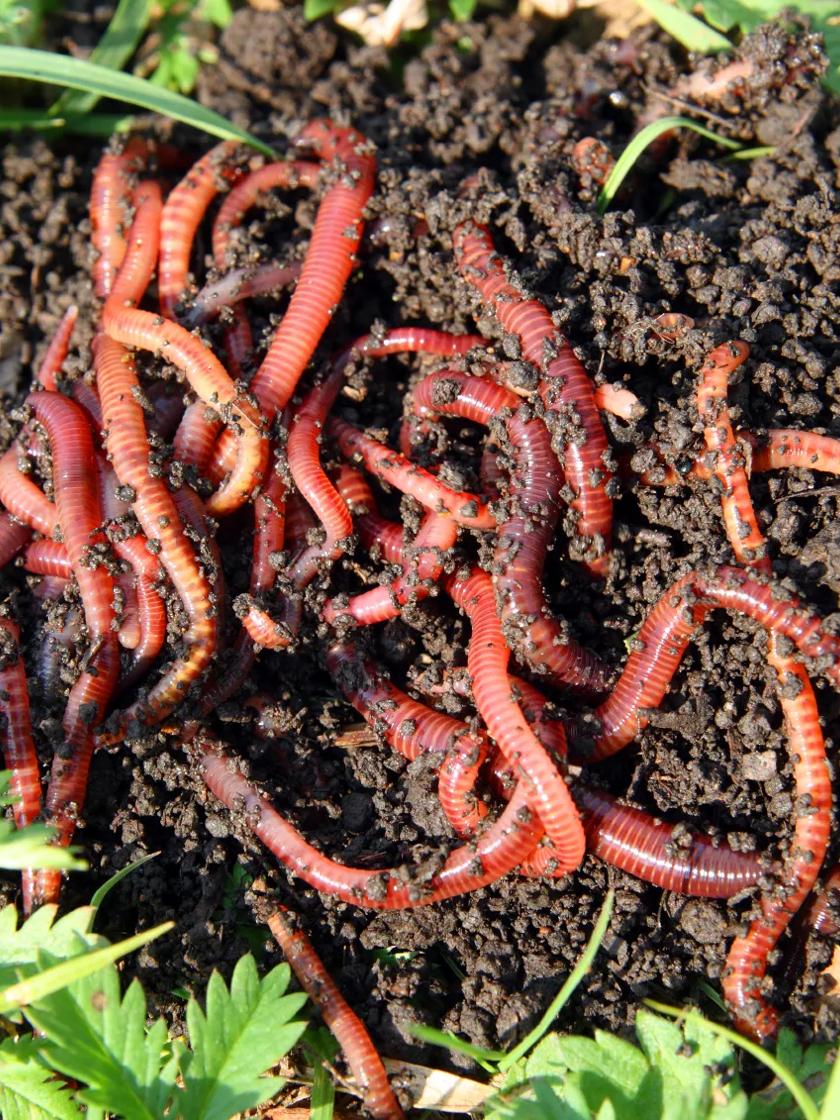Red Wiggler Worms Demystified: Opening the Keys of Vermiculture for Greener Living and Nutrient-Rich Soil
In the realm of lasting practices for enriching soil top quality and advertising eco-conscious living, red wiggler worms play an essential yet typically ignored duty. Red Wiggler Worms. Comprehending the ins and outs of caring for these worms, enhancing their environment, and using their castings can lead to a greener way of living and much healthier soil for plants to prosper.
The Role of Red Wiggler Worms
Red Wiggler worms play a crucial duty in composting systems by efficiently damaging down natural issue right into nutrient-rich castings. These voracious eaters consume a variety of natural products, such as cooking area scraps, yard waste, and paper products. As they feed, the worms' gastrointestinal procedures break down the organic issue right into a penalty, dark, and nutrient-dense product known as worm castings or vermicompost.
The spreadings generated by Red Wiggler worms are very useful for soil health and plant development. They are rich in necessary nutrients like phosphorus, nitrogen, and potassium, which are important for sustaining healthy plant growth. Additionally, worm spreadings contain advantageous germs and enzymes that assist enhance dirt structure, boost water retention, and boost nutrient uptake by plants.
Benefits of Vermicomposting

In addition, vermicompost, the nutrient-rich final result of vermicomposting, functions as an exceptional natural fertilizer and soil conditioner. It enhances dirt framework, enhances soil oygenation, and enhances dirt wetness retention. These properties contribute to much healthier plants with stronger root systems and far better resistance to parasites and illness. Vermicompost additionally enriches the dirt with vital nutrients like nitrogen, potassium, and phosphorus, promoting plant development and overall dirt fertility.
In addition, vermicomposting supports sustainable horticulture methods by providing a natural and chemical-free alternative to artificial plant foods. Red Wiggler Worms. This environmentally pleasant method not just enriches the dirt yet additionally helps minimize reliance on hazardous chemicals, promoting a greener and more sustainable way of horticulture
Establishing a Worm Bin
When establishing a worm container for vermicomposting, correct configuration is important to make sure the success of the composting process. The first action in establishing up a worm container is choosing an appropriate container.
After adding the bedding, present the red wiggler worms to the container. It is advised to begin with a little number of worms and gradually enhance as they multiply. The worms ought to then be given with food scraps such as fruit and vegetable peels, coffee grounds, and eggshells. It is essential to stay clear of adding meat, dairy, oily, or salted foods to stop bring in parasites and producing unpleasant odors.
Routinely keep track of the moisture i was reading this degrees and temperature in the worm container to ensure optimum conditions for the worms. With correct setup and upkeep, the worm bin will successfully convert natural waste right into nutrient-rich compost for your plants and yard.
Gathering Worm Spreadings
To effectively collect nutrient-rich worm spreadings from your vermicomposting system, a systematic harvesting technique is important. When it comes time to collect the worm castings, there are a couple of essential actions to follow to make sure a successful procedure. First of all, quit adding fresh food scraps away of the worm bin for a pair of weeks before harvesting. This urges the worms to migrate sideways with fresh bed linen and food, making it simpler to dig the castings from the opposite side.

Troubleshooting Common Issues
Identifying and addressing typical challenges that might occur throughout the vermicomposting procedure is essential for keeping a efficient and healthy worm container. Adding excess food scraps can lead to an accumulation of moisture and level of acidity in the worm bin, possibly hurting the worms. Another concern is unpleasant odors rising from the worm container.
Additionally, if the worm populace is decreasing or the worms show up undesirable, it could be as a result of environmental stressors such as severe temperatures or pH levels. Checking these aspects and making needed changes is important for the well-being of the worms. By troubleshooting these usual issues immediately, vermicomposters can ensure a effective and smooth vermicomposting process while preserving a thriving worm population.

Final Thought
In final thought, red wiggler worms play a critical role in vermiculture by breaking down raw material right into nutrient-rich dirt. The advantages of vermiculture consist of greener living and boosted dirt top quality. Establishing up a worm container is essential for successful vermiculture, and harvesting worm spreadings provides useful garden compost for horticulture. By comprehending and repairing common problems, people can unlock the secrets of vermiculture for lasting living and healthier soil.
As they feed, the worms' digestive system procedures break down the organic issue right into a fine, dark, and nutrient-dense material recognized as worm castings or vermicompost.
The spreadings created by Red Wiggler worms are highly beneficial for dirt health and plant growth. Adding excess food scraps can lead to a build-up of wetness and acidity in the worm container, potentially damaging the worms.Furthermore, if the worm population is decreasing or the worms appear harmful, it might be due to environmental stress factors such as extreme temperature levels or pH levels. Setting up a worm bin his comment is here is necessary for effective vermiculture, and harvesting worm castings offers useful compost for horticulture.